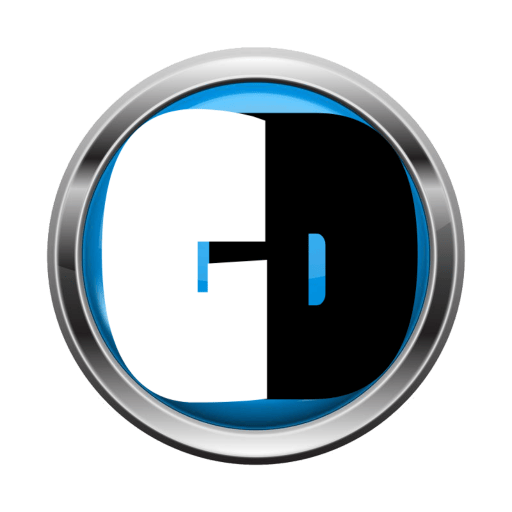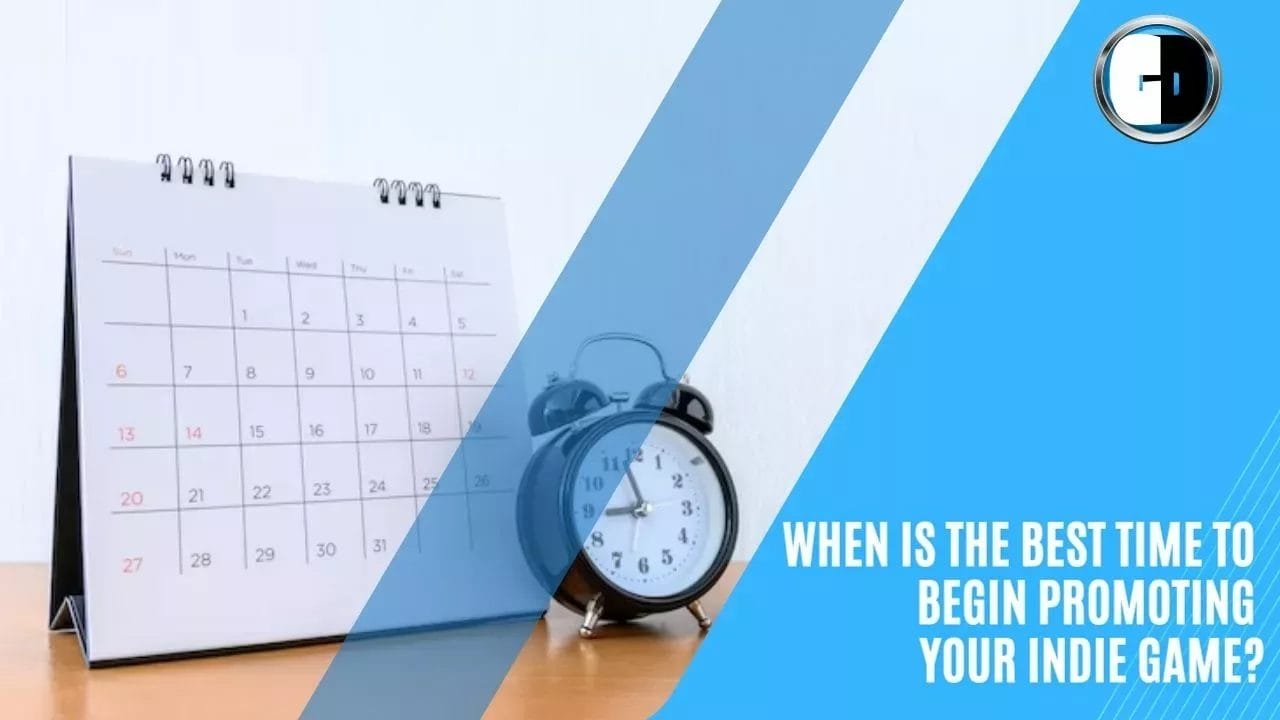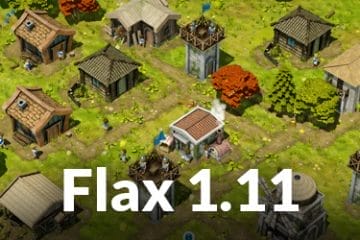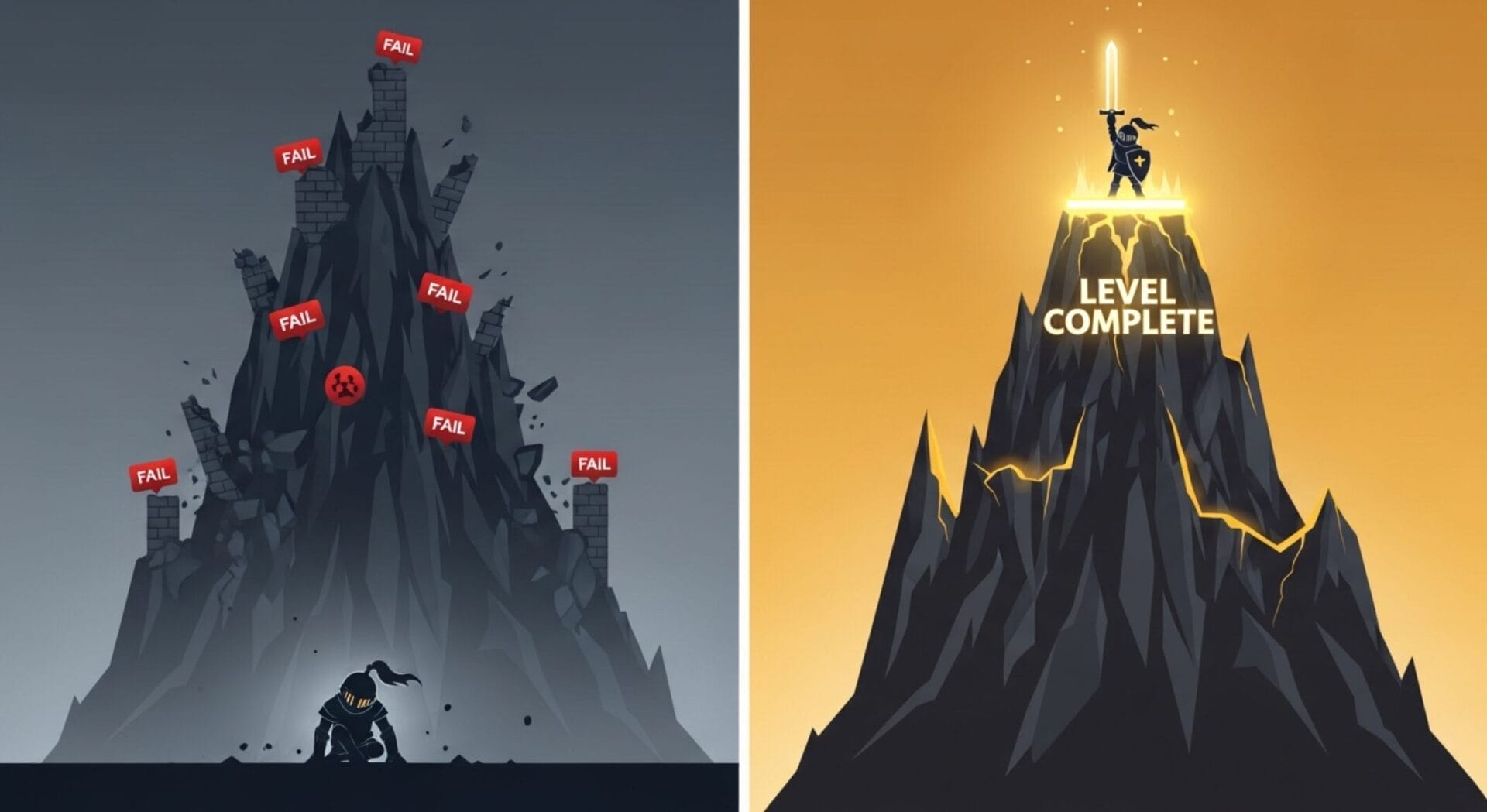The best time to begin promoting your indie game is 6-12 months before release – but only when you have three critical elements in place: a clear game concept, playable prototype, and defined target audience.
Most indie developers get this timing wrong. They either start too early with unpolished materials (losing credibility) or wait until 2-3 months before launch (missing the window to build meaningful awareness). Both mistakes can cost you thousands of potential sales.
The key is matching your promotion timeline to your game’s complexity:
- Simple games (3-6 months development): Start promoting 2-3 months before release
- Medium complexity games (6-18 months development): Begin 6-9 months before release
- Complex games (18+ months development): Start 12+ months before release
- Before you set any dates, ask yourself: Can you create a compelling 30-second gameplay trailer right now? If not, you’re not ready to promote – regardless of your development timeline.
The difference between successful and failed indie launches often comes down to this single decision. Get the timing right, and you’ll build the momentum needed for a strong launch. Get it wrong, and even the best games can disappear without a trace.”When is the best Time to begin Promoting Your Indie Game?” There is the question that has crossed the headed of all serious game developers in a n intent to maximize the possibilities to find success.
This article will try to provide insights into the key factors to consider when deciding the ideal time to start promoting a game. It also explores how comprehensive marketing concepts that can be applied to effectively promote a game and the specific challenges faced by indie game developers in terms of promotion and marketing.
The article discusses:
- The differences between game promotion and traditional marketing strategies, as well as effective ways to promote an indie game without a large marketing budget.
- Highlights the potential benefits of starting game promotion early in the development process and explores how indie game developers can leverage social media platforms for effective promotion. emphasizes community engagement and building a fan base as important aspects of successful game promotion, and provides tips on optimizing a game’s website or landing page for improved search engine rankings.
- Includes case studies and examples of indie game promotion that utilized comprehensive these strategies
Contents: When is the best Time to begin Promoting Your Indie Game

When is the best Time to begin Promoting Your Indie Game?
Promoting your game at the right time can significantly impact its success. The best time to start promoting your game is when you have a clear vision and understanding of the game concept, mechanics, and target audience. At this stage, you should have a solid foundation to build your promotional strategies upon.
It is important to consider the development timeline of your game when deciding on the best time for promotion. Starting too early may result in losing momentum or interest from potential players, while starting too late may not give you enough time to create sufficient awareness and anticipation.
Factors to Consider When Deciding the Right Time to Promote Your Game:
- The complexity and scale of your game: If your game is complex and requires significant development time, it might be beneficial to start promoting earlier to generate buzz and gather feedback from potential players.
- Your target audience: Researching and understanding your target audience’s preferences and behavior can help determine when they are most receptive to promotional efforts.
- Competitor analysis: Analyzing the marketing strategies of similar games can provide insights into when they started promoting their games and how successful their campaigns were.
Key Milestones and Achievements as Starting Points for Promotional Activities:
You can also consider using key milestones or achievements during development as starting points for promotional activities. For example, showcasing a polished gameplay demo or announcing a partnership with a well-known brand can generate excitement among potential players.
In summary, the best time to begin promoting your game is when you have a clear vision of the game concept, mechanics, and target audience. Considering factors such as development timeline, target audience preferences, competitor analysis, and key milestones can help you decide the optimal timing for your promotional efforts.

Early Development Stage
During the early development stage of your game, it is important to start promoting it in order to generate interest and gather feedback from potential players. By promoting your game at this stage, you can begin building a community around your project and involve players in the development process. One effective strategy is to create a teaser trailer or gameplay footage that showcases the unique features and mechanics of your game. This can be accompanied by a blog post or social media updates to keep your audience engaged.
Building Hype through Social Media
Social media platforms such as Twitter, Facebook, and Instagram are excellent tools for promoting your game during the early development stage. Create dedicated pages or accounts for your game and regularly post updates about its progress. Share concept art, behind-the-scenes photos, and sneak peeks of gameplay mechanics to keep followers interested. Engage with your audience by responding to comments and questions, and consider running contests or giveaways to further boost engagement.
Creating a Mailing List
In addition to social media promotion, it is highly recommended to create a mailing list specifically for your game. This allows you to directly reach out to interested individuals who have shown genuine interest in your project. Offer incentives for signing up, such as exclusive content or early access opportunities. Regularly send newsletters with updates on development progress, upcoming features, and release dates to keep subscribers informed and excited about your game.
Mid-Development Stage
Once your game has reached the mid-development stage, it is crucial to ramp up promotion efforts in order to build anticipation among potential players. At this point, you should have substantial gameplay footage and polished visuals that can be showcased through various marketing channels.

Showcasing at Gaming Conventions
Gaming conventions and expos provide an excellent platform to showcase your game to a wide audience. Book a booth or table at relevant events, such as PAX or Gamescom, and allow attendees to play a demo version of your game. This not only generates buzz but also provides valuable feedback from players. Prepare promotional materials like brochures, posters, and business cards to distribute to interested individuals.
Collaborating with Influencers
Collaborating with influencers in the gaming industry can greatly amplify the reach of your game. Identify popular YouTubers, Twitch streamers, or bloggers who have an audience that aligns with your target demographic. Offer them early access to your game or invite them to participate in closed beta testing. In return, they can create gameplay videos, reviews, or articles about your game, exposing it to their followers and potentially driving more interest towards its release.
Nearing Completion Stage
As you approach the completion stage of your game, it is essential to focus on building excitement and creating anticipation for its upcoming release. At this point, you should have polished gameplay mechanics, refined visuals, and a solid marketing strategy in place.
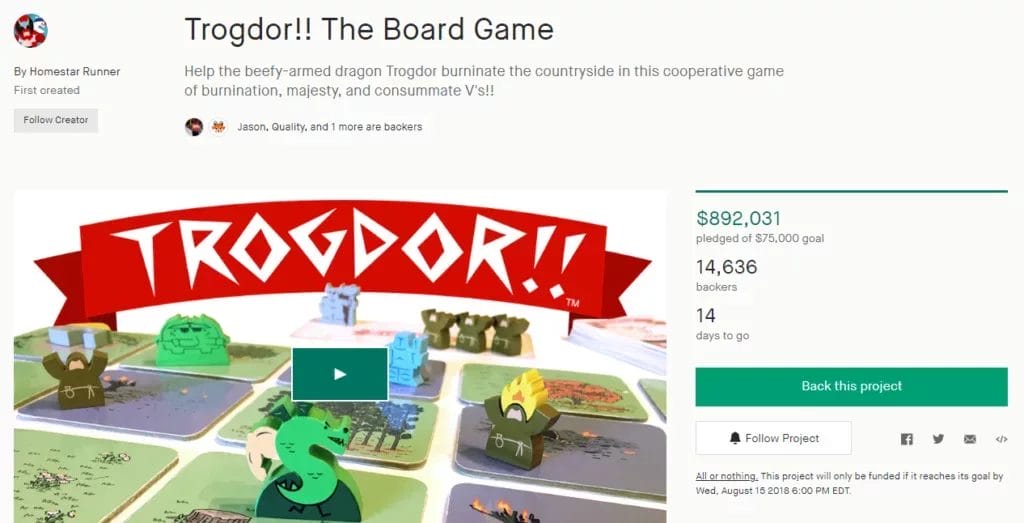
Launching a Crowdfunding Campaign
If funding is required for the final stages of development or marketing efforts, launching a crowdfunding campaign can be an effective way to generate financial support while simultaneously promoting your game. Platforms like Kickstarter or Indiegogo allow you to present your project to potential backers and offer enticing rewards in exchange for their contributions. Create compelling campaign videos and detailed descriptions outlining the unique aspects of your game that will attract backers.
Engaging with Gaming Communities
To further promote your nearing completion game, actively engage with gaming communities relevant to your genre or target audience. Participate in forums such as Reddit or dedicated game development communities to share updates and engage in discussions. Be transparent about the development process, address concerns, and gather feedback from potential players. This not only helps in building a loyal fanbase but also creates a positive buzz around your game.
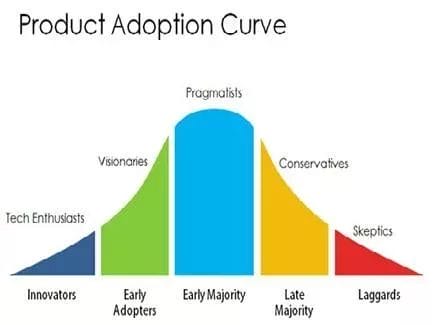
The Importance of Early Marketing
When it comes to marketing your game, starting early is crucial for building anticipation and generating buzz. By beginning your marketing efforts well in advance of the release date, you give yourself ample time to create awareness among your target audience and build a loyal following.
a) Creating Hype through Teasers and Trailers
One effective strategy is to release teasers and trailers that offer glimpses into the gameplay, storyline, or unique features of your game. These short videos can be shared on social media platforms, gaming forums, and YouTube channels dedicated to gaming content. By teasing your audience with exciting visuals or intriguing storylines, you can pique their curiosity and generate excitement.
b) Engaging with Potential Players through Social Media
Social media platforms such as Twitter, Facebook, Instagram, and Reddit provide excellent opportunities to connect directly with potential players. Start by creating official accounts for your game and regularly post updates about its development progress, behind-the-scenes insights, concept art, or character reveals. Encourage interaction by responding to comments and questions from followers to foster a sense of community around your game.

Building Anticipation Closer to Release
In the months leading up to the release date of your game, it’s essential to intensify your marketing efforts further. This period allows you to capitalize on the existing interest generated during the early stages while also attracting new potential players.
a) Pre-Launch Campaigns and Contests
Create pre-launch campaigns that encourage players to participate in contests or giveaways related to your game. For example, you could organize a fan art competition where participants have a chance to win exclusive merchandise or early access codes. These campaigns not only generate excitement but also help expand your reach as participants share their entries on social media.
b) Influencer Partnerships and Reviews
Collaborating with influential gamers or gaming influencers can significantly boost your game’s visibility. Reach out to popular YouTubers, Twitch streamers, or bloggers who specialize in reviewing games similar to yours. Offer them early access to your game in exchange for an honest review or gameplay video. Positive reviews from trusted sources can greatly influence potential players’ decisions and generate organic interest.
c) Demo Releases and Beta Testing
Releasing a demo version of your game or conducting beta testing allows players to experience a portion of the gameplay before the official launch. This not only helps you gather valuable feedback but also creates anticipation among gamers who are eager to try out the full version. Encourage players to share their experiences on social media or gaming forums, further increasing awareness about your upcoming release.
Overall, starting your marketing efforts well in advance, engaging with potential players through social media, creating hype through teasers and trailers, and implementing strategies closer to release like pre-launch campaigns and influencer partnerships are essential steps in successfully marketing your game before its release.

Factors to Consider When Deciding the Right Time to Promote Your Game
1. Game Development Stage
The stage of development your game is in can greatly influence the right time to promote it. If your game is still in its early stages, it may be wise to hold off on promotion until you have a more polished and complete product. This allows you to create a strong first impression and generate excitement among potential players. On the other hand, if your game is nearing completion or has already been released, promoting it at the right time can help maximize its visibility and reach.
2. Target Audience Availability
Consider the availability of your target audience when deciding when to promote your game. For example, if your game primarily appeals to students or young adults, promoting it during summer break or holidays when they have more free time could be advantageous. Additionally, understanding the peak times when your target audience is most active on social media platforms or gaming communities can help you plan promotional activities for maximum engagement.
3. Competitor Analysis
Conducting a thorough analysis of your competitors can provide valuable insights into the right timing for promoting your game. Identify similar games in your genre and observe their promotional strategies and release schedules. Look for gaps or periods of lower competition where you can stand out and capture more attention from potential players. By strategically timing your promotions when there are fewer competing releases, you increase the chances of gaining greater visibility and attracting a larger player base.
Key considerations:
– Is my game visually appealing and feature-complete enough to make a strong first impression? – Are there specific periods when my target audience is more likely to engage with gaming content? – How frequently are similar games being promoted within my genre? – Are there any major gaming events or conferences where I could showcase my game for maximum exposure? Overall, carefully considering the development stage, target audience availability, and competitor analysis will help you determine the right time to promote your game effectively. By strategically timing your promotional efforts, you can generate buzz, attract more players, and increase the chances of a successful launch or ongoing success for your game.
Early Successes
When promoting a product or service, it is essential to highlight key milestones and achievements that demonstrate its success. In the early stages, these milestones can include reaching significant sales targets, gaining a substantial customer base, or receiving positive feedback from customers. These accomplishments serve as valuable starting points for promotional activities as they showcase the initial impact and potential of the offering.
An effective strategy to leverage these achievements is by crafting compelling case studies or success stories. By sharing real-life examples of how the product or service has benefited customers, potential clients gain confidence in its value proposition. Additionally, incorporating testimonials from satisfied customers further enhances credibility and fosters trust among prospects.
Example:
- Exceeded initial sales target by 150% within the first three months of launch
- Acquired over 10,000 active users in just six weeks
- Received rave reviews on social media platforms with an average rating of 4.8/5
Industry Recognition and Awards
Gaining industry recognition and winning awards not only validates the quality and innovation of a product or service but also provides excellent promotional opportunities. Highlighting these accolades helps position the offering as a leader in its field and differentiates it from competitors.
To maximize the impact of industry recognition, it is crucial to communicate the significance of each award or recognition received. This can be done through press releases, blog posts, or dedicated sections on the company’s website. Additionally, leveraging social media platforms to share updates about these achievements allows for wider reach and engagement with target audiences.
Example:
- Recipient of “Best New Product” award at Industry XYZ Awards 2021
- Recognized as a “Top Innovator” by leading industry publication
- Featured in Forbes’ “30 Under 30” list of rising stars in the sector
Expansion into New Markets or Product Lines
Expanding into new markets or introducing additional product lines signifies growth and adaptability, making it an ideal milestone to promote. This demonstrates that the company is continuously evolving to meet customer needs and stay ahead of market trends.
To effectively promote this achievement, companies can develop targeted marketing campaigns tailored to the specific market or product line being introduced. Collaborating with influencers or thought leaders within the new market can also help generate buzz and establish credibility. Furthermore, highlighting any unique features or benefits of the expanded offering will attract both existing customers and new prospects.
Example:
- Successfully entered the European market, securing partnerships with major retailers
- Launched a new line of eco-friendly products in response to growing consumer demand for sustainable options
- Expanded service offerings to include personalized consultations, enhancing customer experience and satisfaction
Promotion: Wait for a Polished Game or Start Earlier?
Benefits of Waiting for a Polished Game
Starting the promotion of a game after it has been fully polished and refined can offer several advantages. Firstly, waiting allows the development team to iron out any bugs or issues that may have been present during the earlier stages. This ensures that players will have a smoother and more enjoyable gaming experience, which can lead to positive word-of-mouth recommendations and increased player retention. Additionally, waiting for a polished game gives the marketing team more material to work with. They can showcase high-quality gameplay footage, visually stunning graphics, and engaging storylines in their promotional materials. This can help generate excitement among potential players and build anticipation for the game’s release. Furthermore, waiting allows the developers to incorporate any last-minute improvements or updates based on player feedback from beta testing, enhancing the overall quality of the game.
Advantages of Starting Promotion Earlier
On the other hand, starting promotion earlier in the development process also has its merits. By initiating promotional activities during the early stages, developers can create a buzz around their game long before its release date. This early exposure can attract attention from gamers who are always on the lookout for new and exciting titles. Moreover, starting promotion earlier provides an opportunity for developers to gather valuable feedback from potential players through beta testing or demo releases. This feedback can be used to improve various aspects of the game such as gameplay mechanics, user interface design, or even storyline elements. Incorporating these improvements early on ensures that players’ expectations are met upon release and helps avoid negative reviews due to unaddressed issues.
Tips for Effective Early Promotion
If you decide to start promoting your game earlier in its development cycle, here are some tips to make it effective:
- Create engaging teaser trailers: Develop short and captivating videos that offer a glimpse into the game’s world, characters, or gameplay mechanics. Use visually appealing graphics and intriguing storytelling techniques to pique the interest of potential players.
- Establish a strong online presence: Utilize social media platforms, gaming forums, and developer blogs to regularly share updates about the game’s progress. Engage with the gaming community by responding to comments and questions, building anticipation and fostering a sense of community around your game.
- Offer exclusive sneak peeks: Provide limited access to beta versions or demos of the game to selected influencers or loyal fans who can help spread positive word-of-mouth about your project. This can generate excitement and curiosity among wider audiences.
- Gather player feedback: Actively encourage players to provide feedback during early testing phases. Create dedicated channels for them to share their thoughts on gameplay mechanics, visuals, or any other aspect of the game. This feedback can be invaluable in making necessary improvements before the final release.
By carefully considering whether to wait for a polished game or start promoting earlier, developers can make informed decisions that align with their goals and resources while maximizing their chances of success in the competitive gaming market.
The Optimal Timeframe for Effective Promotional Results
Short-Term Promotions
For short-term promotions, which typically last a few days to a couple of weeks, the key is to create a sense of urgency and encourage immediate action from customers. These promotions are ideal for generating quick spikes in sales or attracting new customers. Examples of short-term promotional strategies include flash sales, limited-time discounts, and one-day-only offers. By creating a sense of scarcity and exclusivity, businesses can drive impulse purchases and create a buzz around their products or services.
Tactics for Short-Term Promotions:
- Offering time-limited discounts or coupons
- Running flash sales with limited quantities
- Launching one-day-only promotions
- Hosting exclusive events or pop-up shops
Medium-Term Promotions
Medium-term promotions typically span several weeks to a few months and aim to build sustained interest and engagement among customers. These promotions allow businesses to showcase their products or services more extensively and establish stronger brand loyalty. Examples of medium-term promotional strategies include seasonal campaigns, product launches, and loyalty programs. By leveraging these tactics, businesses can cultivate long-lasting relationships with their target audience.
Tactics for Medium-Term Promotions:
- Creating seasonal marketing campaigns tied to holidays or specific times of the year
- Launching new products or services with targeted advertising and PR efforts
- Implementing customer loyalty programs to reward repeat purchases
- Collaborating with influencers or industry partners for joint promotional activities
Long-Term Promotions
Long-term promotions are ongoing strategies that aim to consistently engage customers over an extended period, often spanning months or even years. These promotions focus on building brand awareness, maintaining customer loyalty, and establishing a strong market presence. Examples of long-term promotional strategies include brand ambassador programs, content marketing campaigns, and social media engagement. By investing in these long-term efforts, businesses can create a solid foundation for sustained growth and customer retention.
Tactics for Long-Term Promotions:
- – Establishing brand ambassador or influencer partnerships to promote products or services over an extended period
- Implementing content marketing strategies such as blogging, video creation, or podcasting to consistently provide value to customers
- Engaging with customers through social media platforms by sharing relevant content, responding to comments, and running interactive campaigns
- Building a strong online community through forums or discussion boards where customers can connect with each other and the brand In conclusion, understanding the optimal timeframe for different promotional strategies is crucial for achieving effective results.
Short-term promotions create urgency and drive immediate sales, medium-term promotions foster sustained interest and loyalty, while long-term promotions establish a strong market presence and customer relationships. By strategically implementing a combination of these promotional approaches, businesses can maximize their marketing efforts and generate long-lasting success.
Can Early Promotion Help Secure Funding or Partnerships?
Benefits of Early Promotion
Early promotion can play a crucial role in securing funding or partnerships for a project or business. By promoting your idea or product early on, you create awareness and generate interest among potential investors and partners.
This can lead to increased visibility, which is essential for attracting the attention of those who have the resources and expertise to support your venture. Moreover, early promotion allows you to gather valuable feedback from your target audience.
Through market research and customer interaction, you can refine your offering based on their preferences and needs.
This iterative process not only improves your product but also demonstrates to potential funders or partners that you are proactive and responsive to market demands.
Building Credibility and Trust
Early promotion helps establish credibility and trust with potential investors or partners. When you promote your idea early on, it shows that you have confidence in its potential success.
This confidence is contagious and can inspire others to believe in your vision as well. Additionally, by sharing information about your project’s progress, milestones achieved, or positive customer feedback, you build a track record of accomplishments. This track record serves as evidence of your ability to execute plans effectively, increasing your credibility in the eyes of potential funders or partners.
Examples of Successful Early Promotion Strategies
- Pre-launch campaigns: Many startups create buzz around their upcoming products by running pre-launch campaigns. These campaigns often involve teaser videos, social media contests, or exclusive previews for early adopters. By generating excitement before the official launch, they attract attention from both customers and potential investors.
- Participating in industry events: Attending trade shows, conferences, or networking events related to your field provides an opportunity to showcase your idea to a targeted audience. These events often attract industry experts, investors, and potential partners who may be interested in supporting your venture.
- 3. Leveraging social media: Utilizing platforms like Facebook, Instagram, or LinkedIn can help you reach a wider audience and build a community around your project. Regularly sharing updates, engaging with followers, and leveraging influencers can greatly amplify the impact of your early promotion efforts.
- 4. Collaborating with complementary businesses: Partnering with other businesses or organizations that offer complementary products or services can provide mutual benefits. By cross-promoting each other’s offerings to their respective audiences, both parties can gain exposure and potentially attract the attention of investors or partners interested in the combined value proposition.
Remember, early promotion should be strategic and tailored to your target audience. It is essential to communicate the unique selling points of your idea, demonstrate its potential for success, and showcase any traction or validation received so far.
The Importance of Conducting Market Research
Understanding Customer Needs and Preferences
Market research plays a crucial role in gauging market demand and competition before promoting a product or service. By conducting thorough research, businesses can gain valuable insights into customer needs, preferences, and behavior. This information helps them tailor their marketing strategies to effectively target their desired audience. Understanding customer demographics, buying habits, and pain points allows businesses to create products that meet specific consumer demands.
Identifying Market Trends and Opportunities
Market research also helps businesses identify emerging market trends and opportunities. By monitoring industry developments, analyzing competitor strategies, and staying updated on consumer preferences, companies can stay ahead of the curve. This enables them to capitalize on untapped markets or introduce innovative products that cater to changing customer needs. With accurate market data at hand, businesses can make informed decisions about pricing, positioning, and promotional activities.
Conducting Surveys and Interviews
To gather relevant market data, businesses often conduct surveys and interviews with their target audience. These methods allow companies to directly interact with potential customers and gain insights into their preferences, opinions, and purchasing behavior. Surveys can be conducted online or offline through questionnaires or feedback forms. Interviews can be structured or unstructured conversations aimed at understanding customers’ motivations and desires.
Analyzing Competitor Strategies
Another essential aspect of market research is analyzing competitor strategies. By studying competitors’ products, pricing models, marketing campaigns, distribution channels, and customer reviews, businesses can identify gaps in the market that they can exploit. This analysis helps companies position themselves uniquely in the marketplace by offering differentiated products or services that meet customers’ unmet needs. In summary, conducting comprehensive market research provides businesses with valuable insights into customer needs and preferences while also helping them identify emerging trends and opportunities. Through surveys, interviews, and competitor analysis, companies can gather accurate data to inform their marketing strategies and make informed decisions about product development, pricing, and promotion.
Seasonal Trends
The timing of game promotions can be influenced by seasonal trends. For example, during the holiday season, there is typically a surge in consumer spending as people look for gifts for their loved ones.
This presents a great opportunity for game developers and publishers to promote their games and attract new players. Many gaming companies take advantage of this trend by offering special discounts, limited-time offers, or exclusive in-game content during the holiday season.
Another seasonal trend that impacts game promotion timing is the summer season. During this time, many people have more free time and are looking for ways to entertain themselves. Game developers often release new game updates or expansions during the summer to capitalize on this increased demand.
Additionally, gaming conventions and events such as E3 (Electronic Entertainment Expo) are often held during the summer months, providing an ideal platform for game promotion.
Examples:
- Offering a “Summer Sale” with discounted prices on popular games.
- Releasing a summer-themed expansion pack with new levels and features.
- Partnering with gaming influencers to create summer-themed content and promotions.
Industry Events Impacting Game Promotion Timing
The gaming industry is filled with various events throughout the year that greatly impact game promotion timing. These events include major gaming conferences, trade shows, and eSports tournaments. Developers and publishers often plan their promotional strategies around these events to maximize exposure and reach their target audience effectively.
One notable event that significantly influences game promotion timing is E3. Held annually in Los Angeles, E3 brings together industry professionals, media outlets, and gamers from around the world. Many companies choose to unveil new games or showcase upcoming releases during this event to generate buzz and excitement among attendees and online viewers.
Other industry events like Gamescom in Germany or Tokyo Game Show in Japan also play a crucial role in determining when game promotions occur. These events provide opportunities for developers to engage with fans, receive feedback, and generate media coverage. By aligning their promotional efforts with these events, game companies can ensure maximum visibility and impact.
Examples:
- Releasing a teaser trailer or gameplay footage during E3 to create anticipation for an upcoming game.
- Offering exclusive in-game items or bonuses during industry events to reward attendees and generate positive word-of-mouth.
- Hosting live-streamed tournaments or competitions at gaming conventions to showcase the competitive aspect of a game.
Understanding Platform Release Schedules
In order to tailor a promotional strategy based on platform release schedules, it is crucial to have a comprehensive understanding of these schedules. Different platforms, such as social media channels, streaming services, and app stores, have their own unique release schedules for updates, new features, or content releases. By staying informed about these schedules, businesses can strategically plan their promotional activities to coincide with the platform’s peak engagement periods.
Benefits of Aligning Promotions with Release Schedules
Aligning promotions with platform release schedules offers several benefits. Firstly, it allows businesses to take advantage of the increased user activity and attention that typically accompanies new releases or updates. By timing promotions to coincide with these events, companies can maximize their reach and impact.
Secondly, tailoring promotional strategies based on platform release schedules helps build anticipation and excitement among the target audience. By teasing upcoming releases or offering exclusive deals during specific time frames when users are more likely to be engaged with the platform, businesses can create a sense of urgency and generate buzz around their products or services.
Lastly, aligning promotions with release schedules enables businesses to leverage any marketing efforts made by the platform itself. Many platforms actively promote new releases or updates through various marketing channels. By coordinating promotional activities with these efforts, companies can benefit from the additional exposure provided by the platform’s own marketing campaigns.
- Increased user engagement during peak periods
- Building anticipation and generating buzz
- Leveraging platform’s own marketing campaigns
By understanding platform release schedules and strategically aligning promotions with them, businesses can effectively optimize their marketing efforts and maximize their chances of success on various platforms.
1. Creating Buzz and Anticipation
One effective pre-launch tactic for building a strong initial player base is to create buzz and anticipation around your game. This can be done through various channels such as social media, gaming forums, and influencers. Utilize platforms like Twitter, Facebook, and Instagram to tease gameplay footage, concept art, or behind-the-scenes content. Engage with potential players by sharing updates regularly and encouraging them to sign up for newsletters or join a dedicated community forum.
Example:
To generate excitement, consider hosting exclusive beta testing events or closed alpha access for select players. This not only allows you to gather valuable feedback but also creates a sense of exclusivity and urgency among gamers who want to be among the first to experience your game. – Promote teaser trailers on YouTube – Collaborate with popular streamers or YouTubers for gameplay previews – Run contests or giveaways on social media platforms
2. Building an Engaging Website
Another crucial aspect of pre-launch tactics is creating an engaging website that serves as a central hub for information about your game. Your website should have clear navigation, visually appealing design elements, and easy-to-access information about the game’s features, storyline, and release date.
Example:
Consider incorporating the following elements into your website:
- Interactive character bios or lore sections
- Frequently asked questions (FAQs) section addressing common queries
- Developer blogs or news updates showcasing development progress
- Pre-order options or early access sign-ups Additionally, optimize your website for search engines by using relevant keywords in meta tags and descriptions. This will help potential players discover your game when searching online.
3. Leveraging Influencers and Press Coverage
Harnessing the power of influencers and press coverage can significantly boost your pre-launch efforts. Identify popular gaming influencers or content creators who align with your game’s genre and target audience. Reach out to them, offering exclusive access to the game or inviting them to participate in closed beta testing.
Example:
- Send press releases to gaming websites and magazines
- Offer interviews or exclusive sneak peeks to journalists
- Collaborate with influencers for sponsored content, such as gameplay videos or reviews
By leveraging the reach and credibility of influencers and press outlets, you can expand your game’s visibility and generate interest among their followers, ultimately driving more players to join your initial player base. Remember, each tactic should be tailored to fit your specific game and target audience. Experiment with different strategies, analyze their effectiveness, and adapt accordingly to ensure a strong initial player base for your game.
In-House Team vs. External Agencies for Game Promotion: What Works?
Benefits of an In-House Team
An in-house team for game promotion offers several advantages. Firstly, having a dedicated team within the company allows for better coordination and communication throughout the entire game development process. The team members are already familiar with the company’s goals, values, and target audience, which can result in a more cohesive and effective promotional strategy.
Additionally, an in-house team has a deep understanding of the game’s features and mechanics since they have been involved in its development from the beginning. This knowledge enables them to create accurate and compelling marketing materials that highlight the unique selling points of the game.
Advantages of External Agencies
On the other hand, hiring external agencies for game promotion brings its own set of benefits. One major advantage is their expertise and experience in marketing games across different platforms and genres. These agencies often have a wide network of contacts within the gaming industry, including influencers, journalists, and content creators, which can greatly amplify the reach of promotional efforts.
Furthermore, external agencies provide fresh perspectives and creative ideas that may not be readily available within an in-house team. They bring a wealth of knowledge about current market trends and consumer behavior, allowing them to tailor campaigns specifically to target audiences effectively.
Considerations When Choosing Between In-House Teams or External Agencies
- Budget: Hiring external agencies may involve additional costs compared to utilizing an in-house team. Consider your budget constraints before making a decision.
- Expertise: Evaluate whether your in-house team possesses the necessary skills and knowledge required for effective game promotion or if external agencies can offer specialized expertise that aligns with your goals.
- Time: Consider the time constraints involved in training an in-house team to handle game promotion tasks versus the immediate availability of external agencies.
- Flexibility: Determine whether your promotional needs require a flexible and scalable solution that external agencies can provide, or if an in-house team can adapt to changing requirements effectively.
Keeping it short, both in-house teams and external agencies have their own advantages when it comes to game promotion. The decision ultimately depends on factors such as budget, expertise, time constraints, and flexibility. A combination of both approaches may also be viable, where an in-house team handles core promotional activities while collaborating with external agencies for specialized campaigns or specific target markets.
Creating Engaging Content
One of the key strategies for leveraging social media platforms effectively for game promotion is to create engaging content. This involves understanding the target audience and tailoring the content to their interests and preferences. By posting captivating images, videos, and teasers related to the game, developers can generate excitement and curiosity among potential players.
Additionally, interactive content such as polls, quizzes, or challenges can be utilized to encourage user participation and foster a sense of community around the game. This not only increases engagement but also helps in spreading the word about the game through shares and recommendations from users.
Building a Strong Online Community
To maximize the effectiveness of social media platforms for game promotion, it is crucial to build a strong online community around the game. This can be achieved by actively engaging with followers through comments, direct messages, and live sessions.
Developers can create dedicated groups or forums where players can interact with each other, share experiences, provide feedback, and even organize online tournaments or events related to the game. By fostering a sense of belongingness within this community, developers can gain loyal fans who will not only play but also promote the game among their own networks.
Influencer Marketing
An effective way to reach a wider audience on social media platforms is through influencer marketing. Collaborating with popular influencers or content creators who have a large following in the gaming niche can significantly boost visibility and credibility for a game.
Developers can identify relevant influencers who align with their target audience demographics and approach them for partnerships. These influencers can then create sponsored content featuring gameplay footage, reviews, or tutorials about the game. Their endorsement holds weight among their followers and can drive significant traffic towards the game’s official channels or website.
Utilizing Hashtags and Trending Topics
Hashtags and trending topics are powerful tools for increasing the discoverability of game promotion posts on social media platforms. By researching and using relevant hashtags, developers can ensure that their content reaches a wider audience interested in similar games or related topics.
Monitoring trending topics and incorporating them into game-related posts can also help in gaining visibility.
For example, if a particular gaming event or announcement is creating buzz, developers can leverage that momentum by aligning their promotional content with the trending topic.
Running Contests and Giveaways
A great way to generate excitement and engagement around a game on social media platforms is by running contests and giveaways. Developers can organize competitions where players have to complete certain tasks related to the game, such as sharing their high scores or creating fan art.
In return, participants can be rewarded with exclusive in-game items, merchandise, or even early access to new features. These contests not only encourage user-generated content but also create a sense of anticipation among players, leading to increased interest and word-of-mouth promotion.
Collaborating with Other Game Developers
In the highly competitive gaming industry, collaboration can be a powerful tool for mutual benefit. By partnering with other game developers who have complementary products or target audiences, developers can tap into each other’s networks and expand their reach.
Joint promotions, cross-promotions, or even co-developing special events or features can help in attracting new players who may be interested in both games. This collaborative approach not only provides exposure to different audiences but also fosters a sense of community within the gaming industry.
Analyzing Data and Refining Strategies
To ensure continuous improvement in leveraging social media platforms for effective game promotion, it is essential to analyze data and refine strategies accordingly. Developers should regularly monitor metrics such as engagement rates, click-through rates, and conversion rates to evaluate the success of their promotional efforts.
Based on this data, they can identify which types of content or campaigns are resonating well with the audience and make informed decisions about future promotional activities. By constantly iterating and optimizing their strategies, developers can maximize the impact of social media platforms in promoting their games.
Conclusion: When is the best Time to begin Promoting Your Indie Game
Although there isn´t a real “ideal time” to begin promoting your game, as it will dependent on several different factors, we can say that the ideal time to begin promoting your game is when you have a clear understanding of the game concept, mechanics, and target audience. It is important to consider factors such as the complexity of the game, target audience preferences, competitor analysis, and key milestones during development. By strategically timing your promotional efforts, you can maximize awareness and anticipation for your game’s launch.
Additionally, it is crucial to create a well-executed marketing plan that includes a strong online presence, engaging social media campaigns, targeted advertising, and possibly partnerships with influencers or industry leaders. Utilizing various marketing channels and tactics can help you reach a wider audience and generate buzz around your game.
Throughout the development process, it is important to continuously assess and adjust your marketing strategy based on feedback and market trends. This will help you stay relevant and ensure that your promotional efforts effectively reach and engage your target audience.
Remember, promoting your game should not only focus on generating excitement before the launch but also on sustaining interest and driving ongoing sales and engagement after the release. Ongoing marketing efforts such as updates, expansions, and community engagement can help maintain the momentum and success of your game.
In conclusion, the ideal time to begin promoting your game is when you have a clear understanding of your game’s concept, mechanics, and target audience. By strategically timing your promotional efforts and implementing a well-executed marketing plan, you can maximize awareness, anticipation, and ultimately the success of your game.
Frequently Asked Questions ( FAQ) When is the best Time to begin Promoting Your Indie Game
Q: When is the best time to begin promoting your indie game?
A: The best time to begin promoting your indie game is well in advance of its release. It’s important to build anticipation and generate buzz among potential players before your game is even available.
Q: How can timing affect the success of your game’s launch?
A: Timing can greatly impact the success of your game’s launch. Launching your game at the right time can help you avoid competition from other major releases and increase your chances of getting noticed by players and the media.
Q: What role does Steam play in the timing of your game’s release?
A: Steam, being one of the largest platforms for PC gaming, has a significant influence on the timing of your game’s release. You should consider factors such as the availability of slots for featuring your game, upcoming Steam sales, and popular events like Steam Next Fest when choosing a release date.
Q: Should you consider hiring a PR agency to help with your game’s promotion?
A: Hiring a PR agency can be beneficial for indie game developers, especially if they lack expertise in marketing and PR. A PR agency can help you create a strategic marketing plan, reach out to influencers and the media, and maximize the visibility of your game.
Q: What are some key events throughout the year to release your indie game?
A: There are several key events throughout the year that you can consider for releasing your indie game. These include major gaming expos like PAX, gaming award shows, and holiday seasons when players are more likely to purchase games.
Q: Is it better to release a game on PC or console?
A: The choice between releasing a game on PC or console depends on several factors, such as your target audience and the resources available to you. PC games generally have more flexibility in terms of distribution, while console games may have a wider reach and potential for higher sales.
Q: How long before the actual release date should you start building hype for your game?
A: It is recommended to start building hype for your game at least a couple of months before the actual release date. This allows you to build a community, gather wishlists, and generate excitement among players.
Q: What are some effective marketing strategies for promoting a video game?
A: Effective marketing strategies for promoting a video game include creating engaging trailers and showcasing gameplay, reaching out to influencers and gaming media for reviews and coverage, utilizing social media platforms, and running targeted advertising campaigns.
Q: How important is localization in the success of your game’s launch?
A: Localization plays a crucial role in the success of your game’s launch, especially if you are targeting a global audience. Translating your game into multiple languages can help you reach a larger player base and improve the overall player experience.
Q: How can you maximize the visibility of your indie game on Steam?
A: To maximize the visibility of your indie game on Steam, you can utilize the Steam features like Early Access, Steam Next Fest, and releasing frequent updates. Building a strong wishlist base and actively engaging with your community can also help increase the visibility of your game.
A game developer that wants to share its knowledge and experience with other game developers-
